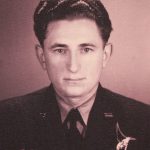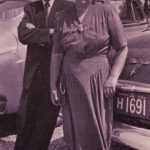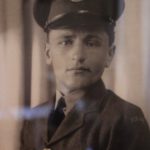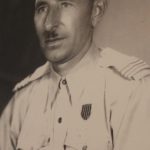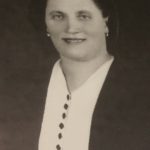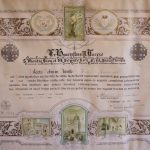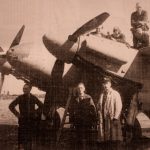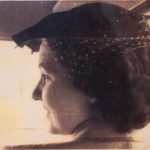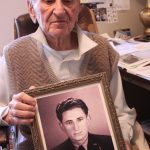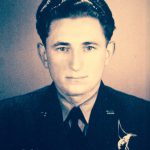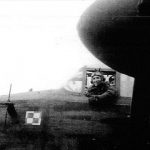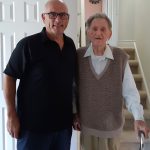Walter Swirski was born in Poland on May 7, 1922. His family lived in a small village, where they were prosperous farmers; Walter’s father owned a share in a flour mill, and had been an officer in the Soviet-Polish war. Walter had one brother and was going to school when the Second World War broke out. His family lived in eastern Poland, and their area was occupied by the USSR as a result of the 1939 Nazi-Soviet Pact. When the Russian troops entered their village, Walter and his mother and brother were taken into custody, and they were prepared to be deported to the USSR. After a month of waiting on the train, they headed east into the depths of Siberia, where they ended up in a forestry camp, living in appalling conditions. When Germany invaded the USSR in 1941, the Poles in the camps were permitted to enter the fight – now that they and the Soviets had a common enemy. Walter became part of the fabled Anders’ army, and upon release from the camp, he began an odyssey that took him through three continents and into the war. Walter passed through the Caspian Sea into Persia, and from there into the Middle East and Africa on his way to Italy. Walter served in the artillery corps in Italy, where he was wounded, but that would not be the end of his war as he went on to England and into the RAF Polish squadrons, serving as a Lancaster pilot, and a Mosquito pilot. In that capacity he flew several missions over occupied France, and on one occasion he was seriously wounded, shot in the legs by a German fighter. While in Britain, Walter also met his future wife, and the two of them would eventually travel to and settle in Canada. Along the way he attended a school for aeronautical engineering in Wimbledon, later refusing a request from the Cold War era Polish government to return to his home country. In Canada he secured employment as an engineer and ended up working on the Avro Arrow; when it was cancelled he went to Westinghouse, where he worked on the development of the television. All the while Walter and his wife settled down and raised their family, falling into the rhythms of postwar Canadian life.
Scott Masters visited Walter in his home in Waterdown, Ontario in August 2019, with assistance from the Memory Project. The footage from that interview has been combined with an earlier interview done by the Hamilton Warplane Museum. We thank all for their contributions to this entry in the Crestwood Oral History Project.
Videos
Click next video below to keep watching
- 1. Prewar Memories; Life in Poland at the Start of the War
- 2. Deported to the USSR; LIfe and Work in the Gulag
- 3. Operation Barbarossa; Anders' Army
- 4. Siberia to Sverdlovsk; Off to the Front
- 5. Rio, Sierra Leone and Scotland; Flight Training
- 6. Posting; The Mosquito and the Shetland Islands
- 7. 300 and 307 Squadrons
- 8. A Brand New Lancaster; Scotland
- 9. Demobilization; The Polish Government
- 10. Canada; The Avro Arrow and Concluding Thoughts
